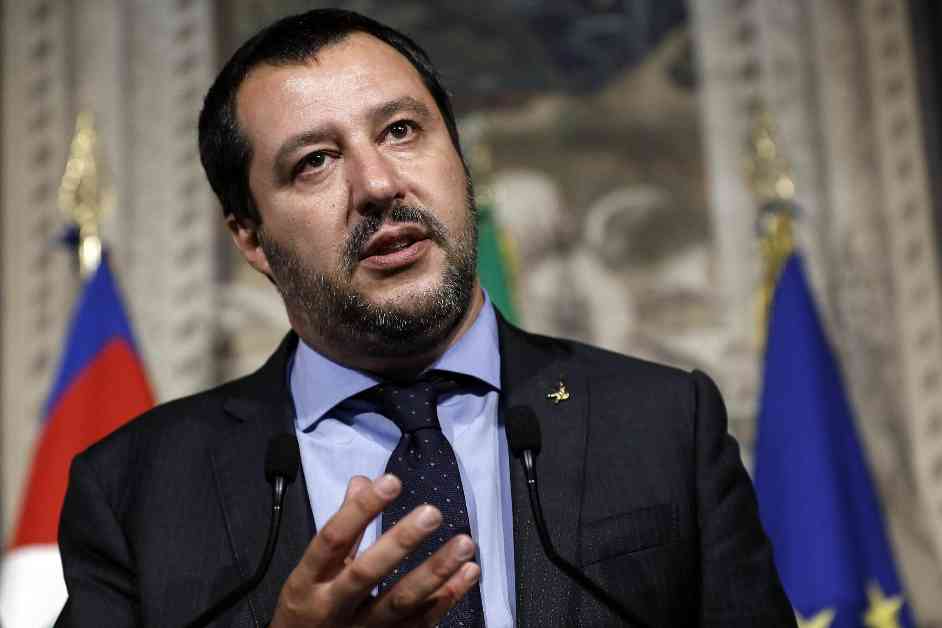Italian Minister Salvini Faces Six-Year Prison Term in Migration Trial
Italian prosecutors have requested a six-year prison sentence for right-wing League leader Matteo Salvini for his decision to prevent more than 100 migrants from landing in Italy when he was interior minister in 2019. The request stems from an incident where Salvini left a migrant rescue ship operated by charity Open Arms stranded at sea for 19 days, leading to accusations of kidnapping.
Prosecutors in the city of Palermo have accused Salvini of violating international humanitarian law by refusing to allow the ship to dock, resulting in a tense stand-off that saw some migrants jumping overboard in desperation. This decision has sparked a legal battle that could potentially bar Salvini from holding government office if convicted.
The Trial and Accusations
During the 2019 incident, Salvini enforced a “closed ports” policy that denied entry to charity ships rescuing migrants in the Mediterranean. The Open Arms ship, carrying 107 migrants, was left stranded off the coast of Lampedusa, with Salvini insisting that other European countries should take in the migrants instead. The prolonged standoff led to deteriorating conditions on the ship, prompting some migrants to attempt drastic measures to seek help.
The prosecutors in Palermo argue that Salvini’s actions constituted a violation of international law by unlawfully detaining the migrants onboard the vessel. Salvini’s decision to prioritize border control over the safety and well-being of the individuals in distress has raised ethical and legal questions, prompting a thorough examination of the case in court.
Solidarity and Defense
In response to the charges, Salvini has remained defiant, stating that he would make the same decision again to protect Italy’s borders from illegal immigration. His supporters within the government, including Deputy Premier Giorgia Meloni, have expressed solidarity with Salvini, framing his actions as necessary measures to uphold national security and sovereignty.
Meloni, who took office in 2022 with a strong stance on migration control, has echoed Salvini’s sentiments, emphasizing the importance of defending Italy’s borders and preventing human trafficking. The League leader’s legal battle has become a focal point for the current government’s policies on immigration and border security, highlighting the ongoing debate over humanitarian principles versus national interests.
The Legal Process and Implications
Salvini’s defense team, led by lawyer Giulia Bongiorno, is preparing to present their case in Palermo, with a potential verdict expected by the end of the month. If convicted, Salvini could face a six-year prison sentence, although the final decision would require completion of the full judicial process, including appeals.
The outcome of Salvini’s trial could have significant implications not only for his political career but also for the broader discussion on migration policies in Italy and Europe. The case has reignited debates on the balance between border control and humanitarian obligations, shedding light on the complexities of addressing the ongoing refugee crisis in the Mediterranean region.
As Salvini navigates the legal challenges ahead, his supporters and critics alike are closely watching the proceedings, which may set a precedent for future decisions regarding migration and asylum policies. The ultimate verdict will serve as a reflection of Italy’s approach to handling migration issues and the extent to which political leaders can be held accountable for their actions in this contentious domain.
































